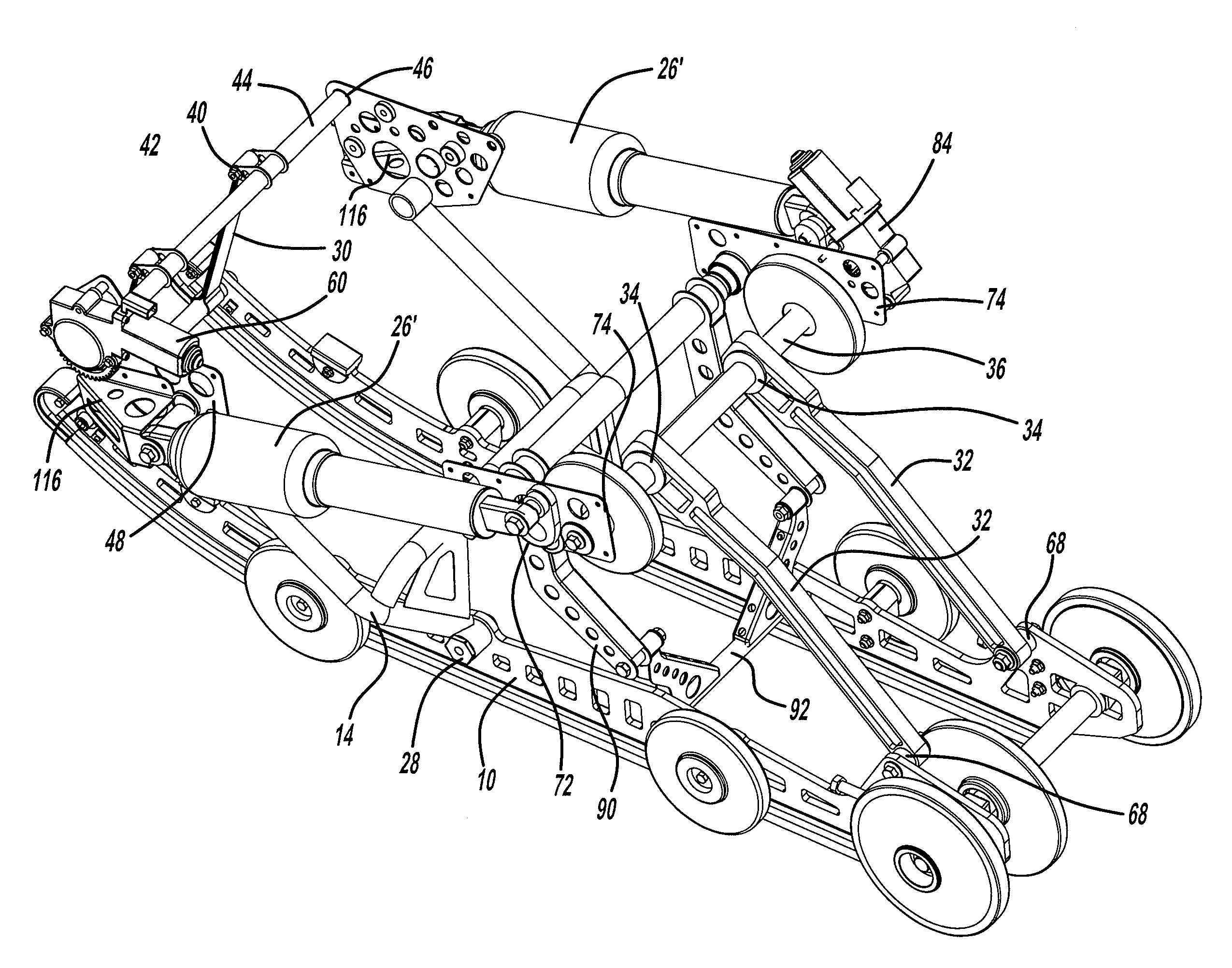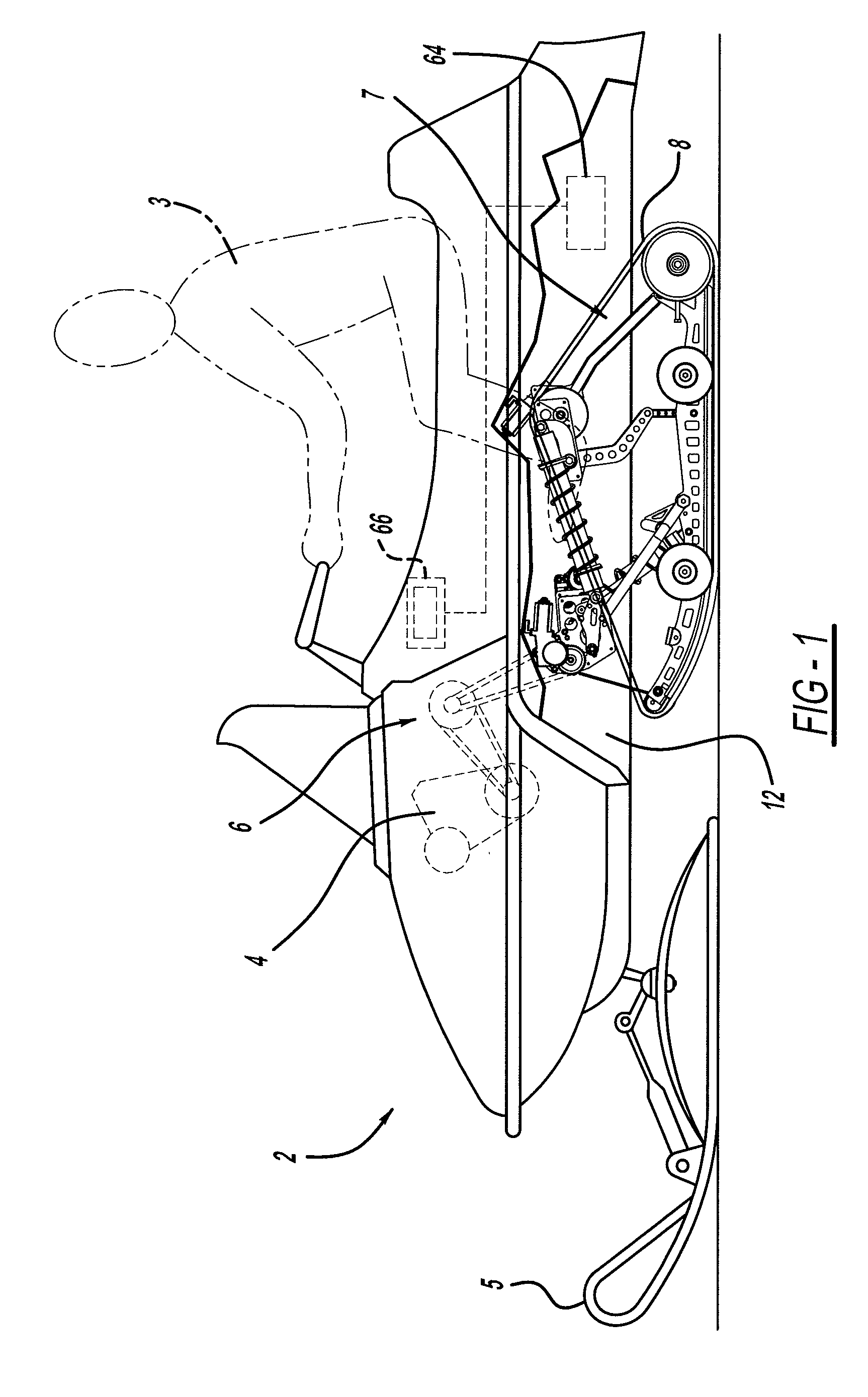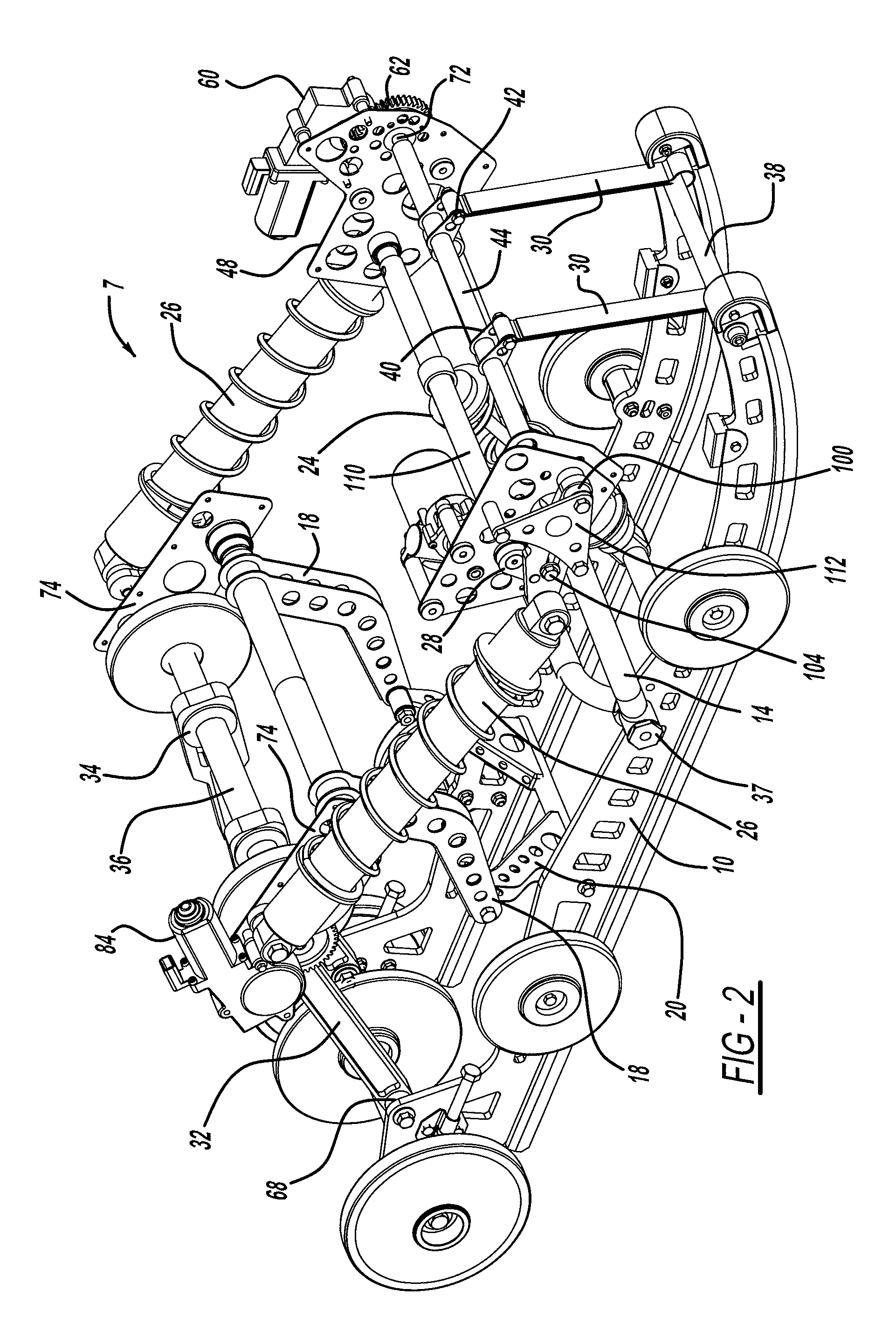Semi-active snowmobile rear suspension
a suspension system and snowmobile technology, applied in snowmobiles, cycle equipment, instruments, etc., can solve the problems of unfavorable rider comfort levels, device does not offer any improvement in reducing unsprung mass, and the rider is either too inconvenienced to make changes, etc., to achieve the effect of improving the motion ratio, increasing the force/displacement characteristic, and constant motion ratio
- Summary
- Abstract
- Description
- Claims
- Application Information
AI Technical Summary
Benefits of technology
Problems solved by technology
Method used
Image
Examples
Embodiment Construction
[0045]The following description of the preferred embodiment(s) is merely exemplary in nature and is in no way intended to limit the invention, its application, or uses.
[0046]In some of the drawings contained herein some components of a snowmobile such as the track, front drive axle assembly have not been included in the figures for the sake of clarity as they are common and typical to most snowmobile rear suspension systems.
[0047]Referring now to FIG. 1 a side environmental view of a snowmobile having a suspension is shown in accordance with one embodiment of the present invention. A snowmobile 2 is generally depicted with a driver 3 seated thereon. The snowmobile has a skis 5 and a track 8 that contact the ground. The skis 5 are used for steering the snowmobile 2, while the track 8 is generally used to drive the snowmobile 2. The snowmobile 2 has an engine that supplies power to the track 8 through a drive mechanism 6. The drive mechanism 6 can be any suitable linkage including bel...
PUM
 Login to View More
Login to View More Abstract
Description
Claims
Application Information
 Login to View More
Login to View More - R&D
- Intellectual Property
- Life Sciences
- Materials
- Tech Scout
- Unparalleled Data Quality
- Higher Quality Content
- 60% Fewer Hallucinations
Browse by: Latest US Patents, China's latest patents, Technical Efficacy Thesaurus, Application Domain, Technology Topic, Popular Technical Reports.
© 2025 PatSnap. All rights reserved.Legal|Privacy policy|Modern Slavery Act Transparency Statement|Sitemap|About US| Contact US: help@patsnap.com



